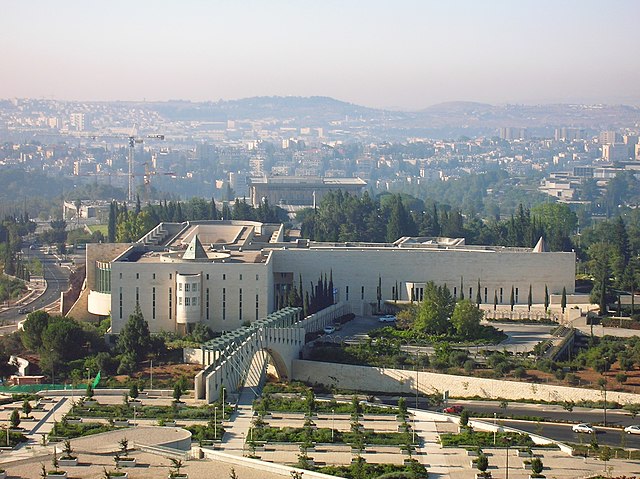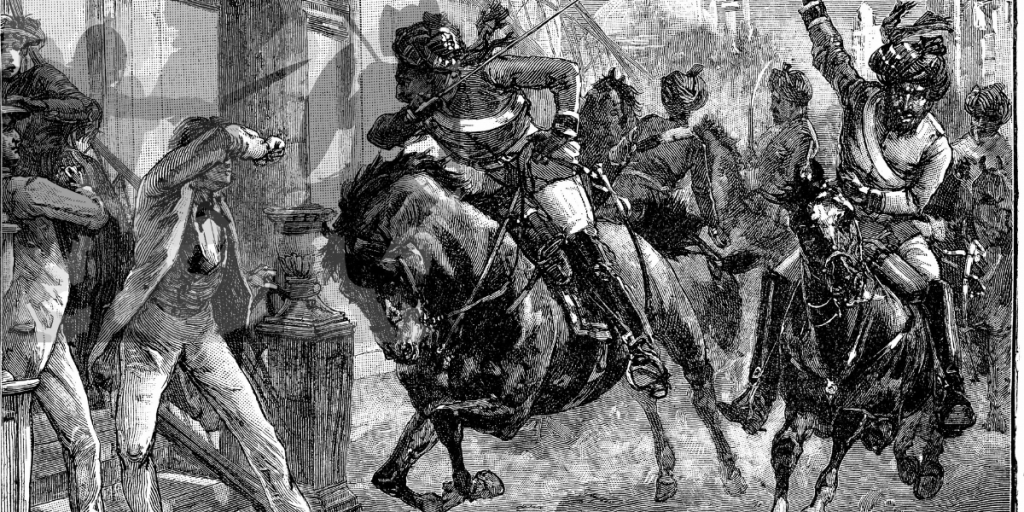For thirty years, the Supreme Court has decided that it may rule on any matter, even those that were previously outside its scope. This revolution was unilateral, without public discussion and without legislation to authorize it. Contrary to acceptable norms in the democratic world, in Israel today any public and private issue can reach the Court and it can intervene for any reason it sees fit. When the Court wants to, it interprets the law flexibly and or strikes down Knesset laws. Recently, the Supreme Court has begun to toy with the idea of striking down Basic Laws, the Court’s very justification for striking down regular legislation. The Court also unilaterally made the Attorney General superior to the government, with no basis in law. This is a serious violation of the separation of powers, and a violation of the democratic ideal of popular sovereignty.
2. Forget democratic theories and ideas. Does the conduct of the Supreme Court actually harm the governing of the State?Definitely. The Court can interfere in any matter for any reason and does so wherever it sees fit. The Court overturned decisions of the Knesset and the government in many key policy areas in recent years.
The Court completely thwarted the government’s policy in dealing with the Palestinian migration to Israel; the compromises reached by the Knesset on the issue of army recruitment amongst ultra-Orthodox citizens; it limited the various strategies meant to deter terrorists, such as denying citizenship to terrorists, denying benefits and demolishing terrorists’ homes; intervened in the supervision of the prices of basic products and even in taxation; The Court recently also rewrote the arrangement established by law regarding surrogacy.
In general, when every question becomes a legal discussion, processes get delayed. The Attorney General preemptively prevents decisions from being implemented after the Supreme Court gave him the veto power over the decisions of the ministers and the government. Elected officials cannot implement the policies for which they were elected, and the rules for doing so are created ad hoc. There is no comparable situation in any democratic country.
3. The reform will create a government without restraints!Absolutely not. The Supreme Court will continue to play its important role in reviewing the legality of the government’s actions and protecting individual rights, similar to what is customary in democratic countries. Apart from this, the Israeli system has additional checks and balances.
After the reform is passed, the Court will continue to conduct judicial review of the government and its subordinates: it will make sure that the authorities do not act in violation of the law, that they act only according to the authority granted to them, that they act without discrimination, in due process, without inappropriate considerations. These are the grounds accepted all over the world and they will continue to guarantee the protection of rights.
It should be emphasized: the judicial reforms do not affect the Court’s power of administrative review. They only regulate the Court’s power to strike down laws.
Additionally, there are other restraints and checks on the governments in Israel. Each government barely lasts two years. The coalitions are composed of several parties that must reach agreements, limiting the government’s power to pass controversial laws.
4. The Knesset will lose all restraint and the ultra-Orthodox will use the coalition to impose religious coercion laws.Not true. The Knesset has many natural limitations. The reform, for the first time, authorizes the Supreme Court to review legislation under appropriate conditions.
We are a parliamentary democracy. One fundamental tenet of this system (originating in the UK) is the supremacy of parliament. Although the government controls the Knesset, it is also subordinate to it, as it governs by virtue of its confidence. In reality, the government can’t legislate whatever it wants. Only recently we saw how coalition politics immediately quashed extreme bills.
In 1995, the Supreme Court unilaterally declared the existence of a constitution, by virtue of which it can annul laws of the Knesset. There is no other example in the world of a country where a constitution was declared retroactively by a court. Despite this, for the first time this reform will authorize the Supreme Court to invalidate a law in the appropriate cases, dependent on a large consensus among judges.
5. It makes no sense for the government to appoint the very judges that are meant to check it.The appointment of judges to higher courts by the elected officials is actually the norm in the democratic world.
There is no democratic justification to give judges veto-power over the appointment of their colleagues. This practically does not exist in the world.
The claim that appointment by elected officials will harm judicial independence doesn’t hold water. Today, lower appellate judges are dependent on the Supreme Court justices for advancement. In the past, the Chief Justice even forbade lower appellate judges from speaking with the political members of the Selection Committee in order to promote their candidacy.The composition of the Judges’ Selection Committee was determined before the Supreme Court declared its power to invalidate legislation and is not suitable for a constitutional supreme court. In the Committee’s current composition, the judges have veto-power, the Bar Association has excess power (while it is unclear who exactly it represents) and the elected officials are a minority in the committee. The committee should be able to appoint judges who are both professional and representative of different legal philosophies that reflect the public’s values and diversity.
Among the absolute majority of developed democratic countries (the OECD countries) the elected officials appoint the judges. There are countries such as Canada where the Prime Minister consults with expert committees that include judges and representatives of lawyers, but these are only advisory committees.
6. If the Attorney General’s opinion is not binding, is the government allowed to break the law?Of course not. The government is subject to the law, and the state attorneys will continue their important work in helping it act only within the law. The government is the body responsible for acting according to law. Only the Court, and not state attorneys, can issue binding rulings on legal matters.
Today Israel has a system that has no precedent in the world: the opinions of the Attorney General bind the government, and it also has a monopoly on legal representation before the Courts. The combination of the two things means that the Attorney General can force his opinion on the government on almost any matter, because every issue is considered a legal question.
The reform brings Israel more in line with democratic norms. It stipulates that the government will consult with the Attorney General and rely on his expertise, but the government will be the one who ultimately makes the decision and takes responsibility for it. It is understood that the government must act only according to the law, and it is very important that the legal advisors assist it in this. It was like this before the reform and it will still be like this afterwards.
If a decision is illegal, the Court can, of course, overrule it. But we should not accept a situation where the prime minister is subordinate to bureaucratic civil servants, which actually function as a fourth authority. The responsibility must be on the person in power. He must make the decisions and be responsible for their results.
7. If the reasonableness standard is canceled, who will protect me from the arbitrariness of the government?The same way you are protected today. “Reasonableness” is a subjective standard that the Court has adopted to intervene in decisions that it deems to be inappropriate, mainly in policy questions, government appointments and the terms of government officials.
Even after the reform, the Court will be authorized to annul decisions of the authorities if they were made without authority, in violation of the law, in violation of rights or out of extraneous considerations and discrimination. The “reasonableness” is a value-subjective standard that the Court adopted for itself, mainly for interference in appointments and policies that were made perfectly legally but were “defective” in the opinion of the Court. The Court should not interfere in the discretion assigned by law to the relevant authorities. It has no expertise and ability for that.
The Court is supposed to practice law. It is no coincidence that courts in other countries in the world have not developed a ‘reasonableness’ standard like the one in Israel, do not interfere in the appointments and removal of elected officials, and do not make policy decisions in place of the competent relevant authorities.
8. But other countries have other checks and balances, such as two houses of parliament or a constitution!Israel is a parliamentary democracy, and the Knesset is the sovereign. Many mechanisms could increase our democratic accountability. However, handing over the final word on public decisions to an unelected judicial authority is not the way.
Indeed, no two democracies have identical mechanisms. There are various proposals to strengthen the relationship between the Knesset and the government, such as the proper election threshold, the conditions for forming or dissolving a government and the manner of selecting party candidates.
However, as long as we are a parliamentary democracy, the Knesset is the sovereign. Transferring decision-making authority in public disputes to the Court weakens democracy, rather than strengthening it.
Although we are a parliamentary democracy, and although we do not have a complete constitution, the current reform authorizes the Supreme Court to review legislation with a special majority and quorum. In this way, a control mechanism against particularly objectionable legislation will be created, and this time it will stem from clear authority that is granted to the Court and not from an authority that it invented for itself.
9. The Supreme Court protects the weak. The reform will harm our rights.The Court has an important role and will continue to play it even after the reform is passed. The Supreme Court and the rest of the courts will continue to protect our rights according to the law in dealings with the government. The reform limits the involvement of the legal system in public and value-based decisions that are meant to be resolved in the political sphere.
The reform does not affect most areas of activity of the Supreme Court and the other administrative courts, whose importance is not disputed.
Even with regard to objectionable legislation, the option to appeal to the Supreme Court will be preserved, except that a special quorum and a special majority will be required to invalidate a law of the Knesset. The reform does not weaken the Supreme Court, but rather strengthens the distinction between policy-making by elected officials and the role of the court.
It should also be remembered that the “protecting of rights” is a complex matter. All rights come at the trade-off of other rights or public interests. These balances in principle should be decoded by the political system, and the court’s place is to uphold the law, protect the individual, and prevent the passing of objectionable legislation in exceptional cases.
10. The reform will turn Israel into a dictatorship.This is mere sloganeering. Israel was a vibrant democracy even before the 1990s Constitutional Revolution. The judicial reform will bring back the balance that was violated during the Constitutional Revolution, with separation of authorities, clear definition of powers, and an independent and strong judicial system that operates within the limits of its authority.
Israel will continue to be an exemplary liberal democracy, based on the rule of the people, the rule of law, separation of powers, and strong protection of civil and human rights as it is today. Israeli democracy is strengthened when the Court cannot interfere in legitimate policy disagreements, such as ultra-Orthodox enlistment, the establishment of private prisons or the appointment of public officials.
On the contrary, Israel will come close to what is accepted in all advanced democracies: the judges of the supreme court are chosen by the elected representatives of the public; the Attorney General serving as a legal advisor, and not a fourth authority within the government; The Basic Laws will serve as the supreme normative framework, and the courts will act within the limits of the authority granted to them by the sovereign body. This is how a proper democracy works.
11. Look what happened in Hungary with an unlimited government. Today it is no longer really a democracy.When there is more than 50% of the public who vote for one single party that takes over the parliament, and the parliament actually runs the court, this is the result. The State of Israel does not come close to that.
Hungary emerged from communist rule in the 1990s, and in 2010 Viktor Orban’s Fidesz party won the elections with a huge majority. Orban changed the division of regions in the elections so that his party alone has a two-thirds majority in parliament, the majority required for changes in the constitution and control of all mechanisms. Hungarian citizens apparently approve of this and therefore choose it again and again. In addition, the management of the court system in Hungary is actually done by a committee appointed by the parliament. Determining the lineups, the promotion of judges and even their remuneration are made by this commission.
In Israel, there has been no single-party control of the parliament since the founding Labour party’s rule. On the contrary, we are a multi-party democracy, with many centrist parties. In Israel, the parliament has no control over the judicial system. The reform makes the government dominant in the Judges’ Selection Committee as is customary in many democratic countries. However after their selection, independence of the judges is absolute. Therefore the comparison with the processes that happened in Hungary is baseless and misleading.
12. The court is the IDF’s shield against international tribunals and sanctions.The reform does not concern the criminal enforcement system, so the argument is not relevant. In any case, the UN Human Rights Council and the International Criminal Court are working against us for political reasons.
According to the rules that obligate it, the International Criminal Court cannot investigate countries that have an independent criminal justice system that reviews the actions of the security forces. Despite Israel’s strong legal and criminal justice system, the ICC has opened investigation into Israeli actions due to political motivations.
In any case, the reform deals with the powers of the Supreme Court in relation to primary legislation and Basic Laws, the powers of the Attorney General and the standard of ‘reasonableness’. All these do not pertain to the field of criminal law. Changing the composition of the Judges’ Selection Committee, does not affect this either. In any case, the ICC in The Hague and the UN bodies have plenty of excuses to act against Israel, with or without the reform.



